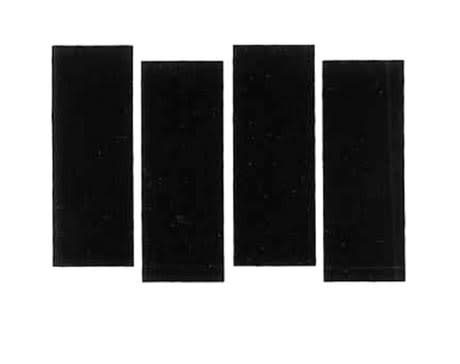If nothing else, 2013 has been the year of the flags, with two reunited versions of seminal Los Angeles hardcore group Black Flag currently on tour. There's plain ol' Black Flag, being run by Greg Ginn, and then FLAG, which features an alternate lineup of Black Flag members. Ginn tried to slap a trademark infringement lawsuit on FLAG, but has just lost the case.
In the lawsuit, Ginn tried to claim that he should be the only person who can tour as Black Flag, and that FLAG was infringing on copyright by using the iconic four bars logo on their shirts. He also named Henry Rollins in the case, claiming that Rollins had attempted to secure the rights to the Black Flag copyright.
Unfortunately for Ginn, the court rules against him, claiming that SST Records has no rights to the Black Flag copyright, Ginn has no rights to the trademarks, fans will be able to decipher which band is which and, most intriguingly, Henry Rollins never actually quit Black Flag.
CORRECTION: We've now learned the case is still pending, though the motion for preliminary injunction has been denied.
Check out the following legal statement:
(1) the court found that SST had no rights in the trademarks;
(2) Ginn seemed to have no individual rights in the Black Flag trademarks;
(3) even if either had had any rights in those marks, they had abandoned those rights through a failure to police the mark for nearly 30 years;
(4) the defendants' claim that the Black Flag assets were owned by a statutory partnership comprised of various former band members – even if these members only consisted of Henry and Ginn, based on (a) accepting Ginn's argument that he never quit and given that there is no evidence or allegation that Henry ever quit – has merit;
(5) that even if the plaintiffs had some trademark claim in the marks, there was no likelihood of consumer confusion between Black Flag and Flag given the ample press coverage over the dispute; and
(6) the trademark application and registration that Henry and Keith made was done in good faith (e.g. not fraudulently) – and is thus not necessarily subject to cancellation – given that they understood their actions to have been done on the part of the Black Flag partnership (see No. 4, above).
Thanks to Spin for the tip.
In the lawsuit, Ginn tried to claim that he should be the only person who can tour as Black Flag, and that FLAG was infringing on copyright by using the iconic four bars logo on their shirts. He also named Henry Rollins in the case, claiming that Rollins had attempted to secure the rights to the Black Flag copyright.
Unfortunately for Ginn, the court rules against him, claiming that SST Records has no rights to the Black Flag copyright, Ginn has no rights to the trademarks, fans will be able to decipher which band is which and, most intriguingly, Henry Rollins never actually quit Black Flag.
CORRECTION: We've now learned the case is still pending, though the motion for preliminary injunction has been denied.
Check out the following legal statement:
(1) the court found that SST had no rights in the trademarks;
(2) Ginn seemed to have no individual rights in the Black Flag trademarks;
(3) even if either had had any rights in those marks, they had abandoned those rights through a failure to police the mark for nearly 30 years;
(4) the defendants' claim that the Black Flag assets were owned by a statutory partnership comprised of various former band members – even if these members only consisted of Henry and Ginn, based on (a) accepting Ginn's argument that he never quit and given that there is no evidence or allegation that Henry ever quit – has merit;
(5) that even if the plaintiffs had some trademark claim in the marks, there was no likelihood of consumer confusion between Black Flag and Flag given the ample press coverage over the dispute; and
(6) the trademark application and registration that Henry and Keith made was done in good faith (e.g. not fraudulently) – and is thus not necessarily subject to cancellation – given that they understood their actions to have been done on the part of the Black Flag partnership (see No. 4, above).
Thanks to Spin for the tip.




